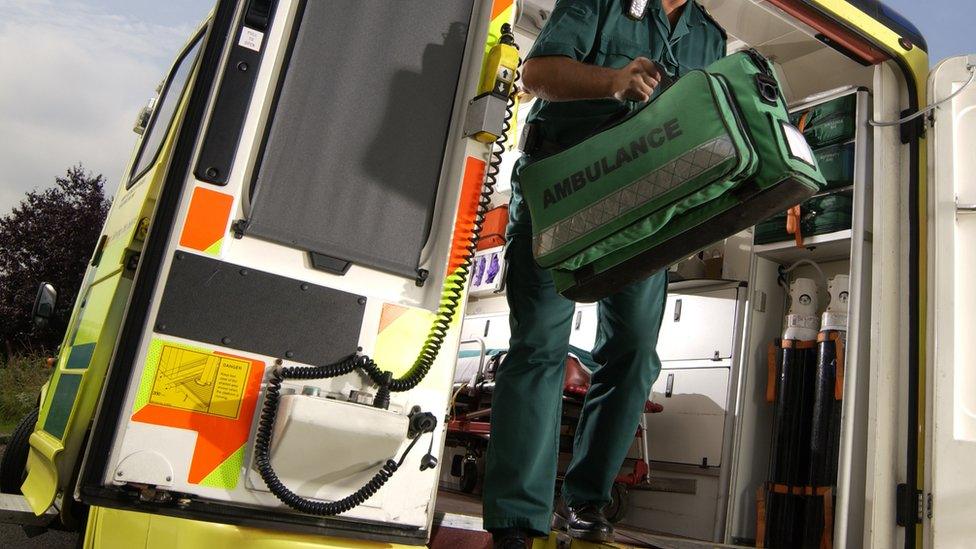Campaign to register every defibrillator in Scotland is launched
- Published
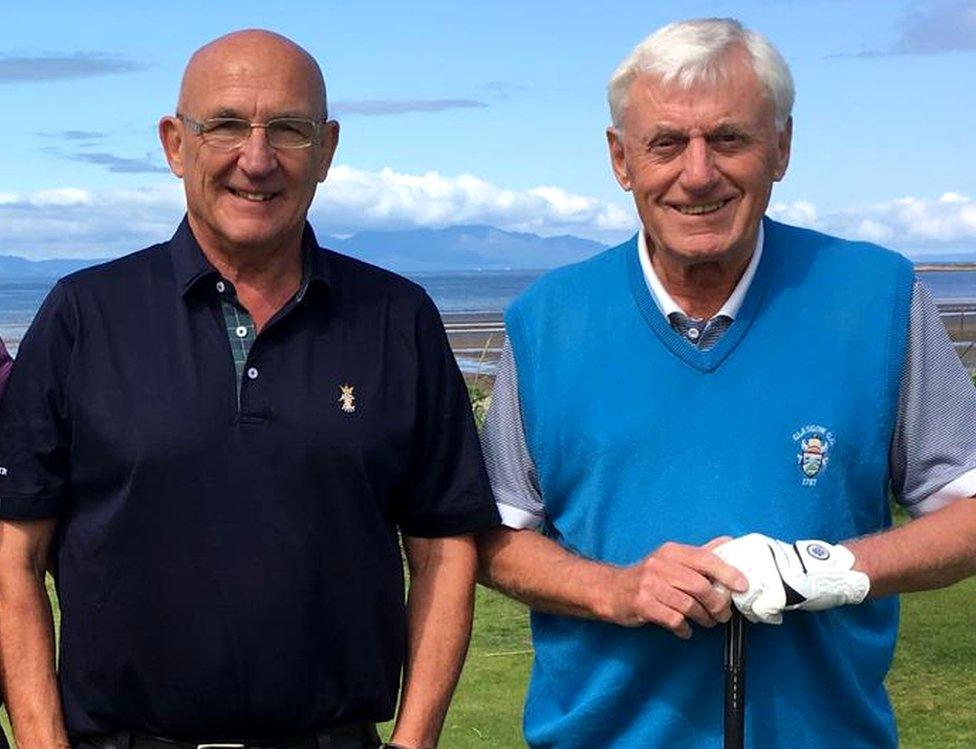
Jim Thow, left, gave CPR to Andy Little (right) until the defibrillator arrived at the scene
When Andy Little got ready to take a putt at his golf club last year he thought he was about to score a birdie.
Instead, he took two steps and collapsed on the golf course. Suffering a cardiac arrest, Mr Little's life was slipping away.
While his golfing partners attempted CPR, staff at his golf club were alerted and soon arrived with a defibrillator.
Just in time, the machine saved his life.
He is now supporting a move to register every defibrillator in Scotland and improve others' chances of surviving cardiac arrest.
Mr Little, 80, told BBC Radio Scotland's Drivetime with John Beattie: " I was on the golf course about to putt and win the hole. That was the last thing I remember.
"I took a couple of steps and down I went. That's the last I knew."
'Next hole was too far'
Mr Little had suffered a cardiac arrest on the eighth hole of the green at Glasgow Golf Club.
His golfing friend Jim Thow acted immediately, starting CPR.
Another friend, Wullie Dunlop, rushed to the clubhouse to call an ambulance.
The club manager returned with a defibrillator which had been bought for the club by a member after his son had died from a cardiac arrest.
Mr Little said: "They worked on me while they waited for the ambulance.
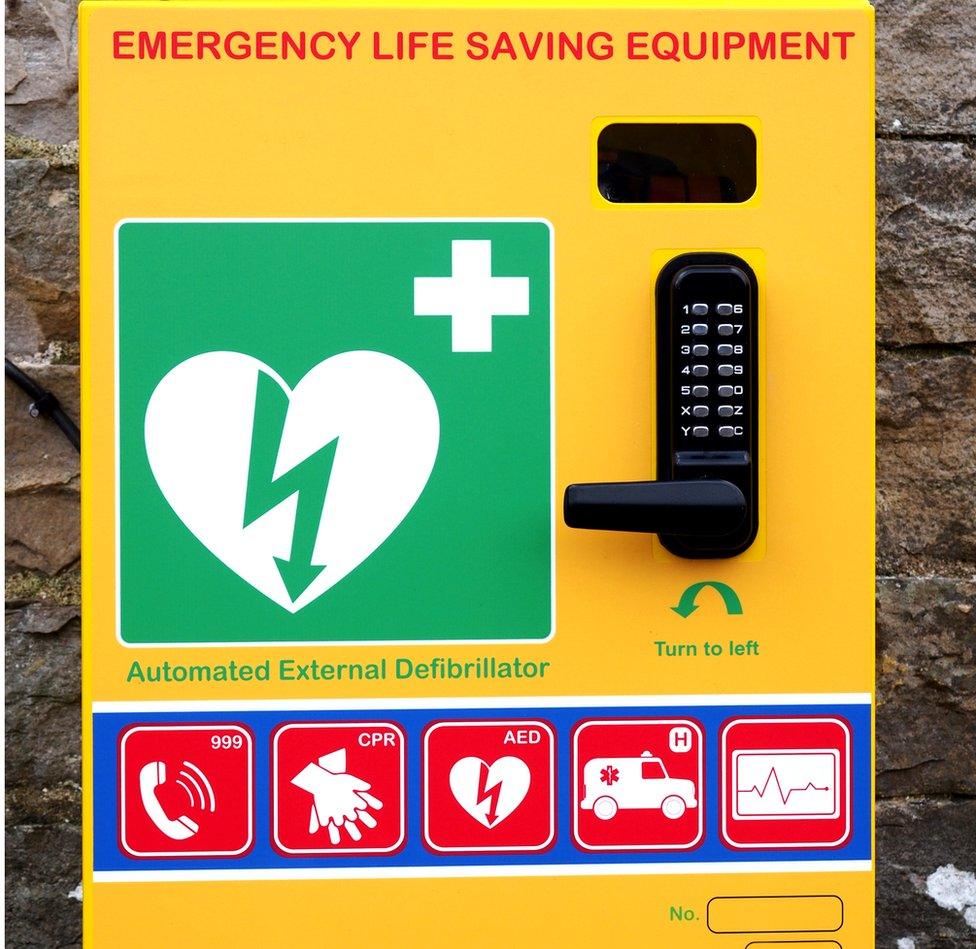
There are about 3,500 out-of-hospital cardiac arrests in Scotland where resuscitation
"I was told I had gone a bit blue. They used the defibrillator and that brought me back.
"It took 15 minutes for them to get me back. They said if I had been at the next hole I would have been dead. It was too far away.
"The defibrillator saved my life."
A different story
Mr Little was taken to hospital and had a stent inserted. He is now healthy and back on the fairway.
Now, Labour MSP Anas Sarwar wants every defibrillator in Scotland to be registered so that the ambulance service can direct people to them quickly and potentially save lives.
A public consultation has been launched, external on his members' bill and it is hoped it could improve Scotland's poor cardiac arrest survival rates.
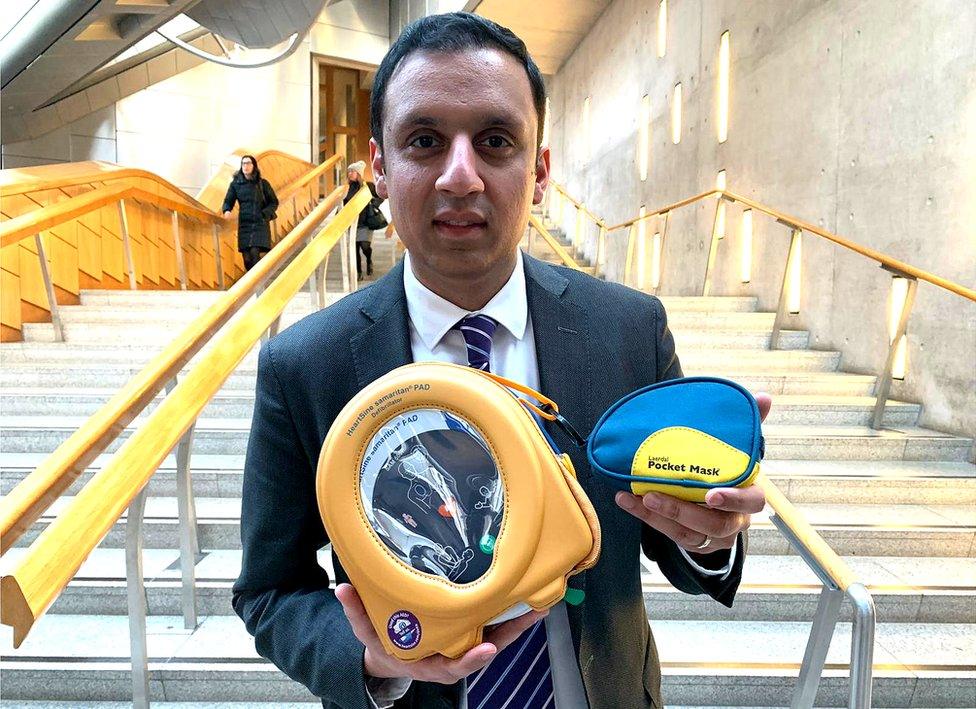
Every year in Scotland there are about 3,500 out-of-hospital cardiac arrests where resuscitation is attempted.
Every minute without CPR or defibrillation leads to a 10% decrease in the patient's chances of surviving, meaning the use of Automated External Defibrillators (AEDs) can dramatically improve survival rates.
However, there is currently no legislation in Scotland governing the registration of AEDs, with purchasers only asked to register them with the Scottish Ambulance Service on a voluntary basis.
As a result, out-of-hospital cardiac arrests often take place near a public AED which is unknown to 999 call-handlers.
The bill would place a duty on the purchaser or guardian of all existing and newly-purchased AEDs in Scotland to register it.
'About saving lives'
Mr Sarwar believes there are hundreds of defibrillators which are not registered.
He said: "This bill is about saving lives. We know that if you have an out-of-hospital cardiac arrest, you only have a one in 10 chance of survival.
"But if a bystander can get a defibrillator to you quickly, then your chance of survival can increase to between 50 and 70%.
"We know that already there are defibrillators all across Scotland but at the moment the ambulance service doesn't know where they are."
He added: "It means we can also see where the gaps are and have defibrillators installed in those areas to increase people's chances."
The move is supported by defibrillator campaigners Kathleen Orr and Sandra McKandie. Ms Orr's son Jayden died after collapsing during an ice skating lesson. A leisure centre defibrillator was available but was locked away.
Sandra McKandie's son died after being hit by a car on his bike. She has campaigned for police rapid response vehicles to carry defibrillators as they are often the first on the scene of a crash.
Ms McKandie said: "The registration is vital to making these pieces of equipment useful in situation such as Keiran and Jayden's. We need to break down the myths of people frightened to use them. If you are frightened to use them, the patient will remain in the same situation, but if you do, it will give them the best chance of survival.
A spokesman for the Scottish government said: "We recognise the importance of Public Access Defibrillators (PADs), and our Out of Hospital Cardiac Arrest (OHCA) strategy ensures PADs are mapped, maintained and accessible to the public. The registration of PADS is a commitment in Scotland's OHCA for Scotland (2015).
"The British Heart Foundation and Scottish Ambulance Service have developed The Circuit National Defibrillator Network, which is now available in Scotland. The Circuit aims to integrate with ambulance dispatch and map the location of PADs across the UK. We encourage all custodians of defibrillators to register on The Circuit."
The consultation ends on 25 May. The online survey is available here, external.

What is a defibrillator and when should it be used?
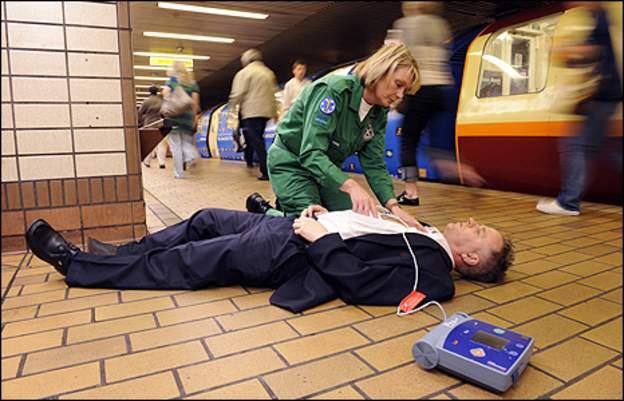
It is a device that gives a high energy electric shock to the heart through the chest wall and should be used when someone is in cardiac arrest.
A cardiac arrest is when the heart stops pumping blood around the body. If someone has suddenly collapsed, is not breathing normally and is unresponsive, they are in cardiac arrest.
Defibrillators are now commonplace in public areas such as train stations, shopping centres, airports and leisure centres.
These defibrillators are often known as public access defibrillators (PAD) as anyone can use them in an emergency.
The British Heart Foundation says that you should not be afraid to use a defibrillator if someone has had a cardiac arrest.
- Published23 May 2019
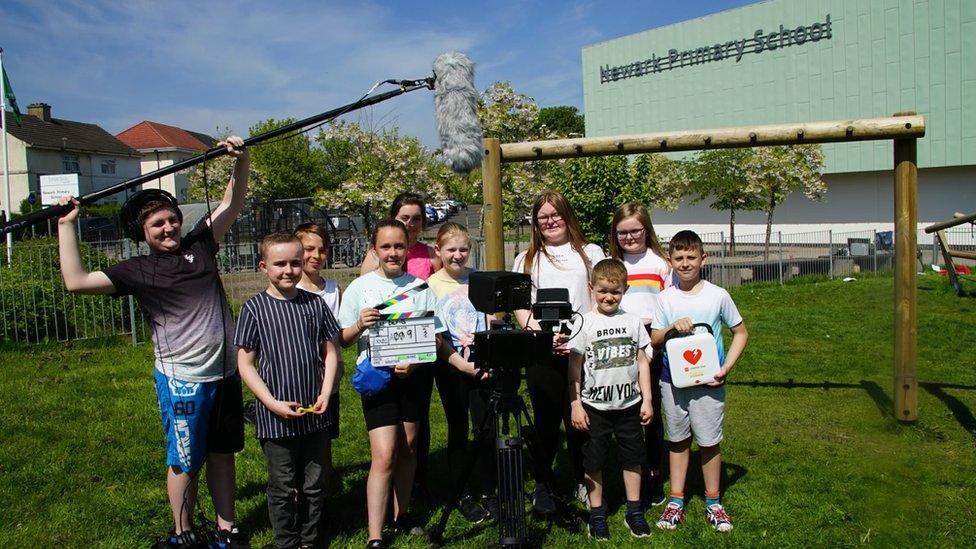
- Published24 December 2019
